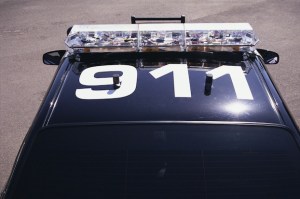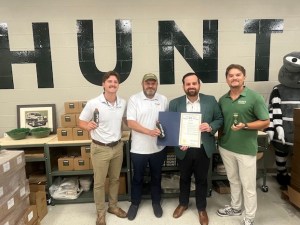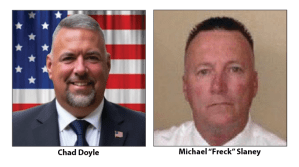Governor optimistic about federal hurricane aid for SW La.
Published 8:55 pm Thursday, September 23, 2021

- Downed power lines litter Lake Charles roadways following Hurricane Laura's arrival in Southwest Louisiana in August 2020. (Rick Hickman / American Press Archives)
Speaking from Washington, D.C., Thursday, Gov. John Bel Edwards expressed optimism that Louisiana will see a sizable share of disaster recovery aid — something that has remained elusive for the southwest region 13 months after Hurricane Laura left it in shambles.
During a Zoom call Thursday, Edwards told reporters of instruments introduced in the House by Democrats and in the Senate by Republicans that contain significant recovery funding for all disasters nationwide that occurred in 2020 and this year.
“We’re in a much better place today that we were before,” he said. “I believe that both in this instrument and appropriation instruments to follow, especially one in early December, that we’re going to be successful in bringing home significant assistance to Louisiana.”
Trending
It’s unknown exactly how much assistance the state will receive, Edwards said. The timing of congressional approval also depends on legislation not getting tied up in partisan issues, he added. A $28 billion disaster relief package has made its way through the House, but its attachment to the debt ceiling prompted all of Louisiana’s GOP House lawmakers to oppose it. The measure’s fate in the Senate remains uncertain.
Edwards has been in the nation’s capital since Monday evening and has met with members of the Louisiana delegation, along with others in Congress involved with the appropriations process. He said congressional leaders on both sides of the aisle agree on the need for disaster relief, but the larger question surrounds whether these instruments become attached to an issue that involves partisanship.
Housing remains the largest disaster-related need, Edwards said. The governor estimated there are well over $900 million in unmet housing needs alone for the hurricanes that occurred in 2020, including Laura, Delta and Zeta. Along with that, state and local governments will have to pay a local cost-share obligation ranging between $130 million to $150 million.
Edwards said it’s unclear whether these legislative instruments will fully take care of the housing needs for the 2020 disasters. He said at least $1.6 billion in CDBG funding would go to the 2020 disasters nationwide. Within 30 days of a bill being passed, the Department of Housing and Urban Development will have to inform Louisiana how much of that it will receive, he said.
Despite Edwards’ optimism, Lake Charles Mayor Nic Hunter said he’s very concerned that early estimates of supplemental funding set aside for Southwest Louisiana will be insufficient.
“If this was the first bite at the apple 10 months ago, I would have felt different,” he said. “We have languished too long in Southwest Louisiana. Before I have more clarification on what supplemental disaster money is going to Southwest Louisiana, I’m going to withhold celebrating a victory.”
Trending
Hunter said he’s pleased that Southeast Louisiana is included in the federal aid for damages caused by Hurricane Ida. Still, he can’t help but look at how long Southwest Louisiana has waited for that same help.
“We have been suffering for 13 months, and Congress is inserting aid for Ida after 45 days,” he said. “I am a bit embarrassed and ashamed we are where we are after 13 months.”
Current estimates indicate that more than 700,000 residents who were impacted by Hurricane Ida, which made landfall in Southeast Louisiana Aug. 29, have applied for FEMA assistance, Edwards said. He said the unmet housing needs could total roughly $2.5 billion, with the current estimates for public assistance sitting around $2.2 billion. That comes with a non-federal match obligation of more than $225 million. Edwards said that whatever is included in the first instrument will be a downpayment to get started with housing and other issues related to Hurricane Ida.
Along with Community Development Block Grant funding, Edwards said the bills have funding for the U.S. Army Corps of Engineering; the U.S. Department of Transportation for emergency work on highways and bridges; the Department of Commerce for fishing disasters; and the Department of Agriculture for crop and timber losses.
Edwards mentioned how local governments have been stretched by the brutal winter storm in February that caused pipes to burst, followed by historic flooding throughout Lake Charles in May that once again damaged homes and businesses.
The governor said he expects the bulk of the work will happen in Congress before the end of this year. He said he looks forward to putting Louisiana in a place to execute programs needed for recovery, mentioning more resilient housing and infrastructure.
Edwards said he can’t guarantee passage of any legislative instrument, but he wants it to happen quickly.
“It never happens as fast as you want, but until you get started, you can’t finish,” he said. “We’re getting much closer to the start.”
Hunter said he expects Congress to approve legislation that doles out supplemental disaster aid, but he restated his concerns about the money being allocated fairly.






